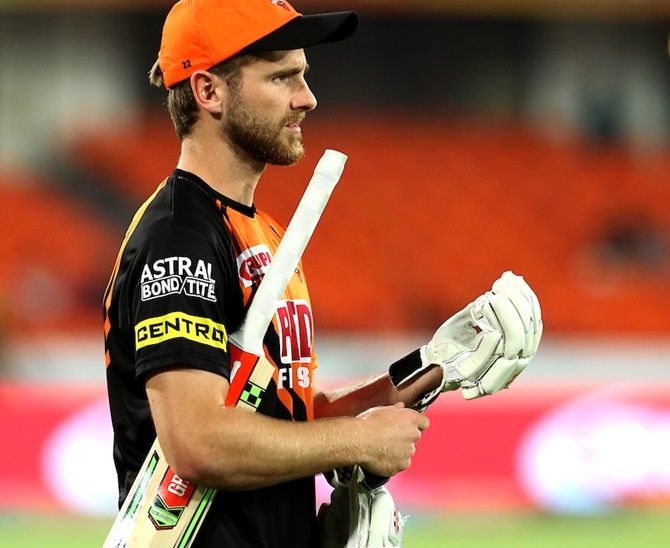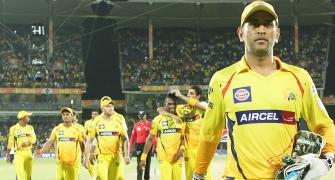'When our players are picked up by IPL franchise, they can only develop their game. We are seeing some of the results that have come in terms of Players' improvement which has been a fantastic part of cricket growth.'

The decision to create a separate window for IPL has played a massive role in qualitative growth of New Zealand cricketers, believes former seamer and current national selector Gavin Larsen.
Larsen and coach Gary Stead, who doubles up as the chief selector, form the two-member panel which looks after the development of the country's players and the cricket board has ensured that IPL is a part of that plan.
"It's very clear. Its highlighted in our Master Agreement (MA) that IPL window must be available for our players if they do get picked up by a franchise," Larsen, who featured regularly in New Zealand's ODI team of 90's, said.
"When our players are picked up by IPL franchise, they can only develop their game. We are seeing some of the results that have come in terms of Players' improvement which has been a fantastic part of cricket growth."
He does accept that scheduling could be a challenge but not something that is too worrisome at the moment.
"There are small challenges around scheduling, for instance, England tours, which can be packed up close to IPL. So it's a challenge around players' availability. But it's not a common issue generally I am not being negative," Larsen said.
One part of Larsen's job is to monitor Black Caps players' performances in the IPL and it would be more significant in the next two years with back-to-back ICC T20 World Cups.
"Definitely, part of the role to continually monitor the group of players, both guys who are incumbent Black Caps and those who are in the ranks, to make sure they are managed appropriately, they are working on their games. IPL is a part of that."
Larsen believes that relation between New Zealand Cricket (NZC) and the players have been excellent as the board understands their needs of being financially well-off, a gateway to which is franchise leagues, county cricket as well as club cricket in the UK.
"The problem in NZ is that domestic cricketers are contracted for only seven months a year and for the rest of the five months, they leave their associations and go off to the United Kingdom to play county or club cricket to make their ends meet."
Another practical reason of having an IPL window is fear of attrition, considering that the cricketing talent pool in a country like New Zealand would be limited with a population of barely 5 million.
"Cricket is a big part of our DNA and we called it our 'Summer Game'. Clearly rugby sits on top of the ladder. When a young talent is identified in New Zealand, it is very important for us to try and hold that talent up in the pipeline. We can't afford because of our size and scale to have too much attrition," he said.
In fact, Larsen also had lengthy discussions with former India coach John Wright, who has been a talent spotter for Mumbai Indians for many years now.
"I met Wrighty (Wright) in Lincoln where India A was playing and he came to have a look at some of his (Mumbai Indians) players (Krunal Pandya and Suryakumar Yadav). It was great speaking to him. Tactical stuff, some players we saw in IPL. He was interested in catching up as to how some of our young players are doing."
Talk about New Zealand and their poor show in Super Overs, Larsen feels it is more about strategic blunders than mental block.
"We don't want to see another Super Over," he said in jest, adding: "I think it's not a mental block but probably we need to tactically rethink from bowling point of view. You know we have given the ball regularly to Tim Southee as our experienced bowler to bowl the Super Overs.
"Perhaps, we need to sit back and just work on who could be our best option. Frankly, if I don't see any Super Over for next five to 10 years, I will be very happy."
The current batch of Kane Williamsons, Tim Southees and Trent Boults will make their way out in the next four to five years and Larsen said they are working on the transition phase.
"Absolutely, any country does run a succession plan across three formats. There are series of scouts who put their thoughts into the melting pot. We co-ordinate all that and are pretty clear on who our developing talent is. The guys like Wags (Neil Wagner), Taylor, they are not going to be around forever. So chapters close and then new chapter opens."










